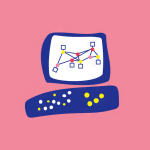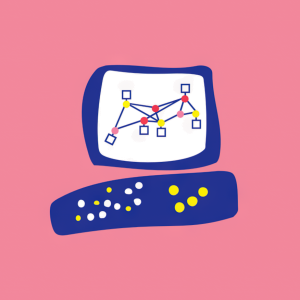Welcome to our dedicated page for Check Point Software Tech news (Ticker: CHKP), a resource for investors and traders seeking the latest updates and insights on Check Point Software Tech stock.
Check Point Software Technologies (NASDAQ: CHKP) generates news coverage spanning cybersecurity product announcements, threat intelligence research, financial results, and strategic acquisitions. As the largest pure-play network security vendor globally, the company's developments carry significant weight across the enterprise security industry.
News from Check Point typically falls into several categories. Product announcements cover updates to its Quantum firewall line, CloudGuard cloud security platform, and Harmony endpoint protection suite. The company's threat research team regularly publishes findings on emerging malware, ransomware campaigns, and nation-state cyber threats, often receiving media coverage when disclosing significant vulnerabilities or attack trends.
Financial news includes quarterly and annual earnings reports, with investors tracking subscription revenue growth, product sales, and operating margins. As a Foreign Private Issuer, Check Point reports results on a different schedule than U.S. domestic companies, with material announcements disclosed through 6-K filings.
Strategic developments include partnership announcements with cloud providers and technology vendors, acquisition news as the company expands its security platform, and recognition from industry analysts such as Gartner Magic Quadrant placements and independent security testing results. Check Point's capital allocation decisions, including share repurchase programs and convertible note offerings, also generate investor interest.
This page aggregates Check Point news from earnings calls, press releases, SEC filings, and financial media coverage to provide a consolidated view of developments affecting the cybersecurity company.
The recent alliance between Alkira and Check Point Software Technologies (CHKP) aims to enhance cloud security solutions for enterprises. By integrating Check Point's CloudGuard firewalls into Alkira's Cloud Network infrastructure as-a-Service (CNaaS), organizations can now implement consistent security controls across cloud and on-premises networks. This collaboration addresses the complexities faced by enterprises in managing security policies in multi-cloud environments. Alkira provides a robust network service while Check Point offers advanced threat prevention capabilities, promising improved efficiency and performance for clients.
Check Point Software Technologies advises that the news release titled "August 2020’s Most Wanted Malware: Evolved Qbot Trojan Ranks On Top Malware List For First Time" issued on September 10, 2021, should be disregarded. This announcement clarifies that the previous report contained content that is no longer relevant or accurate, emphasizing the importance of accurate information in cybersecurity reporting.
Check Point Research (CPR) has released its August 2021 Global Threat Index, highlighting Formbook as the most prevalent malware, impacting 4.5% of organizations globally. This marks a shift as Trickbot drops to the second position. The banking trojan Qbot has fallen out of the top 10 entirely. Newly identified Remcos enters at sixth place. Additionally, the report reveals that Web Server Exposed Git Repository Information Disclosure is the most commonly exploited vulnerability, affecting 45% of organizations worldwide.
Check Point Software (NASDAQ: CHKP) announced the acquisition of Avanan, a leader in cloud email security. This integration aims to enhance the cybersecurity landscape, particularly in email and SaaS collaboration suites, addressing the growing threat of phishing attacks, which have increased sharply during the pandemic. Avanan's technology will be embedded into Check Point Infinity architecture, enabling organizations to modernize their email security systems. This acquisition is expected to bolster Check Point's position in the cybersecurity market by providing a comprehensive solution against sophisticated email threats.
Check Point Software Technologies (NASDAQ: CHKP) has partnered with Regione Marche, the local government of Marche, Italy, to enhance its cybersecurity infrastructure. The collaboration aims to consolidate multiple security solutions into a unified approach that simplifies management and secures sensitive data. Key solutions implemented include Check Point Quantum Security Gateways and R80.40 Security Management, which have improved threat prevention and operational efficiency. The transition was expedited by the COVID-19 pandemic, necessitating robust remote work security measures.
Check Point Software Technologies (NASDAQ: CHKP) announced shareholder approval of all five proposals during its 2021 Annual General Meeting held on August 10, 2021. Approximately 75% of outstanding shares, totaling about 99.1 million, participated in the voting. This endorsement highlights the confidence shareholders have in the company and its operations.
For detailed information about the proposals, refer to the company's proxy statement available on their investor relations page.
Check Point Software Technologies (NASDAQ: CHKP) announced its recognition as a Market Leader in Omdia's Market Radar Mobile Security Management Solutions Report, highlighting its Check Point Harmony Mobile product. The report evaluated seven criteria, including endpoint threat detection and market impact, where Check Point excelled. The need for robust mobile security is underscored by a finding that 97% of organizations faced mobile threats across multiple attack vectors. With the rise of hybrid work, the company's solutions aim to safeguard both corporate and personal devices.
Check Point Software Technologies (NASDAQ: CHKP) has announced a significant $2 billion expansion of its share repurchase program, allowing for up to $325 million in shares to be repurchased each quarter. Since the inception of the program in February 2020, approximately 188 million shares have been repurchased for $11.1 billion. The company aims to enhance shareholder value through this initiative, which may involve open market or privately negotiated transactions. The repurchase is expected to be funded from available working capital.


